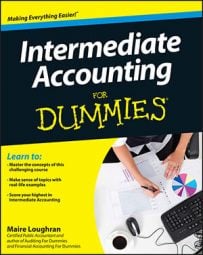As of July 1, 2009, the FASB Accounting Standards Codification (ASC) became the single source of authoritative generally accepted accounting principles (GAAP) in the United States. Before you get in a dither, keep in mind that the Codification doesn’t change GAAP; it organizes GAAP in a more user-friendly fashion and consistent format across the board for all GAAP topics.
FASB allows free, albeit limited, access to the Codification. To check this out, go to the ASC website. On the right side of the page, click Order Professional or Basic View. Then at the bottom of the page, under Basic View — Free Access, click the Select button and follow the order registration instructions.
Access is free, but for some reason, your free access comes with an expiration date. You get an e-mail asking you to renew the free access before your expiration date. If you forget, no biggie. You can renew next time you go to the Codification, regardless of whether your expiration date already passed.
After you complete the log-in procedure, on the Basic View home page, browse the topics on the taskbar at the left to see how to apply GAAP for accounting topics such as revenue; assets, liabilities, and equity; and financial statement presentation. Each topic allows you to drill down to more detailed information.
For example, if you select Equity, you can further select Stock Dividends and Stock Splits to find out how to account for stock transactions under GAAP.
The ASC professional version annual subscription costs $850. However, ask your financial accounting instructor if your school has academic accounting access. If so, you have free access to better search functions, allowing for a fully functional view of the Codification.

